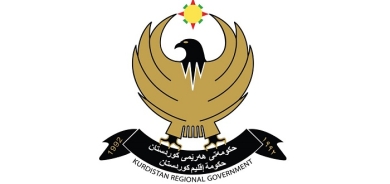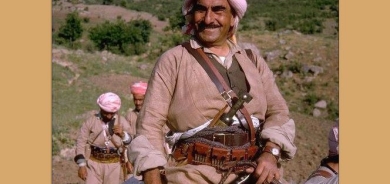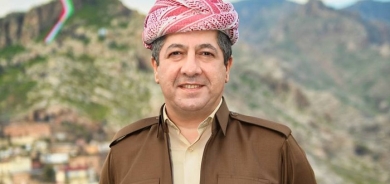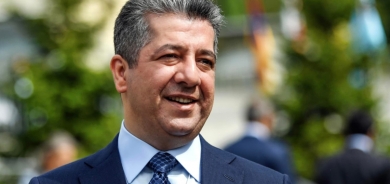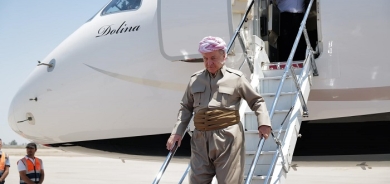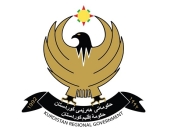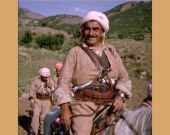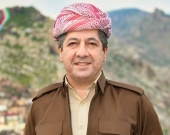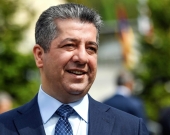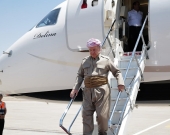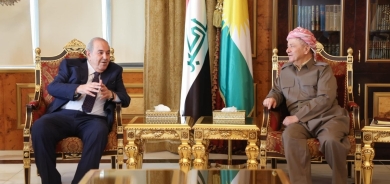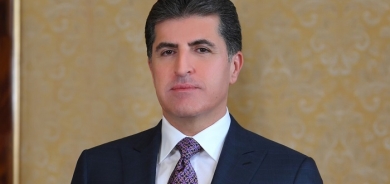The Golden Jubilee… A Liberation Medallion for the Motto “Either Kurdistan or Dissolution” The September Revolution Still Ongoing

************
The ideals of any revolution are reflection of a philosophy which the revolution start with, and that philosophy is an expression of nations’ will and desires who create a unified will at that specific moment to practice those ideals. Therefore; when revolutions are evaluated through the ideals, the main aims and core can be seen. Every revolution’s ideals are reflection of that logic and philosophy exist behind the revolution. Abbas Mahmud Al-Aqad, the great well-known Egyptian and Arabian writer famously asserted in his book (Philosophy of the Revolution in the Scales), he said: (if any one observe the ideals of the French Revolution; (Liberty, Equality, and Fraternity), since these three words match in sound and share common rhyme in the French language, the observer may think that these words been chosen due to that reason. But in fact; no any other word can express the French Revolution better than these three words. Similarly; if we observe the Turkish Revolution we see that out of these three words the term (Fraternity) was changed into (Justice), since the Turks are already brothers through their belief and from Islam’s perspective. They didn’t consider brotherhood in the revolution ideals because they thought that Islam already provided it among the believers. Therefore; the Turkish Revolution promotes “Justice” motto instead. And if we observe the Chinese Revolution, we see that no word was borrowed from the French Revolution ideals into the Chinese Revolution, instead we see the Chinese Revolution ideals are (Nation Principles, Democracy, and National Social), and this to make the nation substitute the state in order to be able deal with Mongols, Tatar, Manchurians, and Tibetans across the borders, and they meant Majority by referring to democracy because the Chinese nation are the representing majorities in that state. In this respect; the Chinese Revolution’s Leader Sun Yat-sen used Democracy as a majority concept to expand his state, unlike the applicable democracy in Europe and the United States. And also; another ideal of the Chinese Revolution (The National Social) turned into a position against dealing with foreign revenues in the country. Similarly; if we look at the ideals of the Egyptian Revolution under the leadership of Jamal Abdul-Nasir in 1952, we see that Egypt’s ideals were (Unity, Order, Function), and this because the Egyptians were not an occupied nation to revolt, and it wasn’t a class which revolt against another class, since Egypt at those times was considering itself as a pioneer in the Arab countries and needed unity among the Arabian Countries, and it also needed order and function to enhance Egypt economically.
Obedience to the ethical laws created tolerance and coexistence among the individuals in Kurdistan, which preserved the September Revolution from the mistake which faced the American Revolution
(Either Kurdistan or Dissolution)… this motto includes many important purposes, the September Revolution was a new historical start in the contemporary history of Kurdistan’s people and the Kurdish nation across all the four parts
If we look at the Kurdish September Revolution from this perspective, where its ideals consisted of (Either Kurdistan or Dissolution), we see that this motto includes many important purposes within it, and it refers to that the Kurds are in the intersection of survival or extinction. Therefore; it is possible to mention here that the commencement of September Revolution was a new historical start in the contemporary history of Kurdistan’s people and the Kurdish nation across all the four parts of Kurdistan. It is true that the September Revolution took place in the Iraqi Kurdistan part only, but it inspired and motivated the entire Kurdish nation in the region to gain a strong will and to hold that motto and choose either liberty or dying, because living without freedom does not make any sense. But if we go further and analyze this motto deeper, and if we ask; when life and liberty are being compared in accordance with the September Revolution principle and refuses subjection and subordination, then what does liberty mean? Here, we should go back to the good will of the leadership who lead the revolution which turned into as a law for giving meanings to liberty and the principles of freedom. In other words; it is that good will which motivated the people of Kurdistan to refuse subordination and taught them that liberty is the absolute need which they can not let go, and it is the same good will that taught them how to be submitted to the ethical rules and act in accordance to Pishmarga’s revolutionary way, along with revolution’s program, fraternity among nations, and moving away from revolution amongst the nations, meaning; war between the Kurds and Arabs, or Kurds with other nations. That’s to say; these facts telling us that the meaning of liberty through obedience to the ethical laws created tolerance and coexistence among the individuals in Kurdistan. This method implemented by The Immortal Barzani in the September Revolution, preserved the September Revolution from the mistake which faced the American Revolution, since the declaration of independence through that liberty which was declared been interpreted by some states that, the purposes behind America’s meaning for liberty and the declaration of independence, is that the Americans get free from the British. But after liberation from the British, they thought it would injustice to grant freedoms to the Black population, that why, Abraham Lincoln, who considers as a liberty inherit in the American history, and in order to preserve the meanings of Freedom, he declared war, even without prior acceptance from the Congress and expressed his readiness to stand before the Congress to defend his decision. The French Revolution as well, where after success, the French Revolution fell in the same mistake and failed to produce tolerance, furthermore; it produced revenge and eventually turned towards violence. Regarding to the French Revolution, the Professors Barbara C. Forrest, professor of History and Political Sciences in Louisiana University talked to Gulan Magazine in an exclusive interview about the violence within the French Revolution, she said: (Remember that the French Revolution itself degenerated into the "Reign of Terror" because the revolutionaries were intent on revenge against the aristocracy and the monarchy. They became ruthless and violent. So the French Revolution did not immediately bring the changes that the revolutionaries desired. They first had to reform themselves as well. In order for a revolution to succeed, the people who carry it out must be genuinely committed to justice and human rights. Justice does not necessarily include revenge. When people who begin a revolution finally succeed, they (the revolutionaries) must be committed to the rule of law. They must also be willing to establish a system for dealing with the injustices that they have overturned. All of this must be based on law and human rights. Moreover, the people who benefit from the revolution must realize that they may not get everything they want immediately. They must be willing to work to bring about the positive changes they want.)
The September Revolution introduced the Kurdish Identity as a Citizenship in Kurdistan, and eliminated the national and religious differences in Kurdistan
At this point, and regarding to the steps done by the Immortal Barzani in the Great September Revolution, we feel that the certain steps was taken in this revolution in time such steps didn’t took into consideration even in the world’s great revolutions:
1. The September Revolution is one of the World’s revolutions, comparing with the French revolution and the American Revolutionary War; it was much committed regarding to its submission to liberty meanings, justice, and human rights.
2. The September Revolution, unlike the French Revolution; after signing the historical March Treaty with the Iraqi Government in 1970, it declared public amnesty for those who supported the Iraqi government against the Kurdish revolution, and it also started with public reconciliation with the political parties whose had political issues with the revolution before the declaration of March Treaty.
3. The September Revolution introduced the Kurdish Identity as Citizenship in Kurdistan, and eliminated the national and religious differences in Kurdistan, and respected the different religious beliefs equally, and for the first time in the Middle East; it refused the nation to be recognized as majorities or minorities, and considered the rights of all the different groups in Kurdistan equally with the Kurds. That’s why; when the Kurds signed the Agreement with the Iraqi Government in March 11\1970, the rights of all the nations in Kurdistan was guaranteed, equal with the rights of the Kurdish population.
The September Revolution introduced the rule of law and the role of law as a necessity, and succeeded in implementing the laws and in establishing the Revolution Supreme Court in the liberated areas
4. The September Revolution originated from the ethical laws and the revolutionary will where the Pishmargas (The Kurdish Fighters) and the revolution leaders were obedient to. The September Revolution introduced the rule of law and the role of law as a necessity, and succeeded in implementing the laws and in establishing the Revolution Supreme Court in the revolution’s liberated areas and vested the court in an individual from one of the least populations in Kurdistan, who was a Christian.
For the sake of Liberty and the Rule of Law, the September Revolution is still ongoing
If the motto “Either Kurdistan or Dissolution” ended with Kurdistan and a respected life for each individual of Kurdistan’s population, then we should remember the fact that having a respectful and an honorable life means to live under the rule of law. In other words; if we failed to implement the rule of law in Kurdistan, then we have to admit it that we failed to fulfill the goals of the September Revolution, moreover; we failed to be committed to the goals of the September Revolution as well. But here the question is; after the September Revolution, does the stepping towards the development of democracy and the rule of law was an easy task? If we take the answer for this question from the world’s liberal revolutionary movements’ history, then unfortunately; the world’s liberal movements’ history does not have an extinguished record in respect to the stepping towards democracy building process and the development of the rule of law, we find that there rather intentions to move towards violence and vengeance.
In this respect, we asked the Professor Hall Gardener; Professor and Chair of the Department of International and Comparative Politics, American University of Paris, about the difficulties that face the nations after the success of the revolution, and the Professor Gardener replied to Gulan Magazine in an exclusive interview as the following, he said: (The revolutionary process is always complex and uncertain. No one really knows when (or even where) revolutions might take place. And no one knows the ultimate outcome. The dynamics of a revolution, once it begins, are also very complex and very difficult to manage. There are essentially three interacting forces. The first is the often conflicting demands of the general population and its differing social classes and strata. The second is the generally conflicting demands of political elites and political parties which can try to find common programs and policies, but which do not always succeed in unifying those positions. The third factor is the external states and groups which seek to interfere in the process of the revolution and which try to influence the differing revolutionary movements within the country. Thus; and in such conflicting societies, the preservation of Liberty requires permanent vigilance and daily struggle to prevent individuals or political parties from seizing total control and to prevent a small group of individuals from ruling in their personal interests. Power must be shared. In the aftermath of a revolution, it is often difficult for the leaderships of that revolution to share power as they often do not trust the other political parties; they may not even trust their own allies in that revolution. The leaderships who gain power often do not want to give up that power, in part as they believe that they know what the best route for the country is, or claim to know it. There may also be demands for revenge as individuals want retribution for the injustices that they experienced, which can lead to new forms of repression. These factors make it difficult to implement democratic governance which respects both majority and minority rights. One of the few revolutions that have succeeded in establishing a democratic form of governance is that of South Africa. Although not all is perfect, South Africa is one the best models of a successful multi-racial democratic revolution in that the government is based on power sharing and reconciliation among the different ethnic/linguistic groups and political parties (including former opponents of the African National Congress). Nelson Mandela became president in 1994, but then stepped down as president once he had served his mandate from 1994 to 1999, thus Mandela did not become a dictator as did some other revolutionaries in Africa and elsewhere. In addition to taking steps to reconcile with its neighbors, so as to prevent conflicts on its borders, South Africa’s “truth and reconciliation” process helped to prevent a domestic bloodbath in the aftermath of its democratic revolution).
However; although 200 years have passed since the French Revolution, Professor Gardener commented to Gulan Magazine about achieving the French Revolution’s ideals, in time the interpretation of those ideals has been in the process of change since 1789, but the French Revolution still ongoing though, he said in this respect: (The French Revolution is still ongoing in that the goals of liberté, égalité, fraternité represent philosophical ideals that have yet not been fully achieved. At the same time, the interpretation of those ideals themselves has been in the process of change since 1789).
If liberty is one of September Revolution’s goals, and if part of that liberty was gained, then preserving that liberty will turn into an extension for the September Revolution to continue
Therefore; if liberty is one of September Revolution’s goals and if part of that liberty was fulfilled, then preserving that liberty will turn into an extension for the September Revolution to continue, regarding to how preserve liberty and how to connect it with democracy, we asked the Professor Shannon C. Stimson, professor of Political Sciences in Berkley University in California, he replied to Gulan Magazine in an exclusive interview in this respect as the following: (As the philosopher Hobbes would say: “if the people are oppressed to the very edge of their life what different does it make, and they will revolt.” That is something that those in power from above should recognize and seek to ameliorate your positive construction and not to the use of force. There aren’t enough guns in the world to stop a revolution if people believe that it makes no different if they live or die at that point. Liberty and Democracy are not identical; they are certainly closely related if what one is looking for is democratic freedom self-determination, as opposed to perhaps liberty from crushing authoritarian force, then the kinds of institutions, social construction, and economic construction that might make democratic self-governing possible will have to be tailored to the material context that you begin with. So; you pointed exactly in the right direction for a huge nation, there was a great debate in the eighteen century about whether or not large nations could be self-governing, or have to be governed in the kind of the authoritarian way from we talked. The answer was often to divide them up into smaller units that would then coordinate. So that; as I said before, the possibility of self-administration, which is sometimes all that democratic self-governing need, it is not simply that you giving the right to vote, but it is that you giving the right to administer your own life, that is to make sure that what you vote for actually gets carried out on the ground in your context. And therefore; the idea of reducing democratic self-governing from huge national referenda to a smaller self-administering context becomes one possible way of allowing for democracy understood as self-governing, self-administering, as opposed to just democracy understood as: “Hey, everybody’s got a vote, so let’s vote.”)
Self-Determination Right is another Meaning for Liberty
Self-determination is another goal of the September Revolution’s purposes, and as the President of Kurdistan Region mentioned it; what we seek to gain, either now or in the future, both are based on the September Revolution, and the strives rely on that base. It was the September Revolution that made the Kurdish individuals sense their will and feel that they own their destiny. Thus; efforts to reach a settling decision and self-determination right for today, is once again; another goal of the September Revolution, therefore; the September Revolution’s will have to continue in order be able to step towards that goal. Of course this goal originates from the efforts to restore the disputed areas and the implementation of the Article 140 from the Iraqi Constitution. In this respect; The Immortal Barzani and the September Revolution draw a “red line” for this goal, because compromising these areas are a “redline”, as the president Barzani repeated many times in this regard, he said; “whatever happens, so be it”. And that’s mean that without the restoration of the disputed areas, including Kirkuk “The Heart of Kurdistan” the goal of the September Revolution would not be considering as accomplished. Therefore; promoting the goal of the revolution and the restoration of the disputed areas shall challenge all the potential risks. And as the Professor Ronald Weed, professor of Philosophy in New Bronx University say, when he talked to Gulan Magazine in an exclusive interview, he said: (I think there is much greater likelihood for the revolution to success when one can not imagine any thing worse than the things currently are. In fact, it is interesting that the analyzers of fear say (when someone has suffered as much as they possibly could and they can not imagine pain any worse than they have, then they no longer have fears). Because fear always concern to target of potential harm of you, but if you can’t imagine yourself to be harmed more than you already are and suffering more pain, then the fear goes away, and I think when fear goes away for individuals and certainly for a larger group of people, it makes the chances of success of a unified revolution much greater.)
Translation and transcription: Qane Kakeiy

